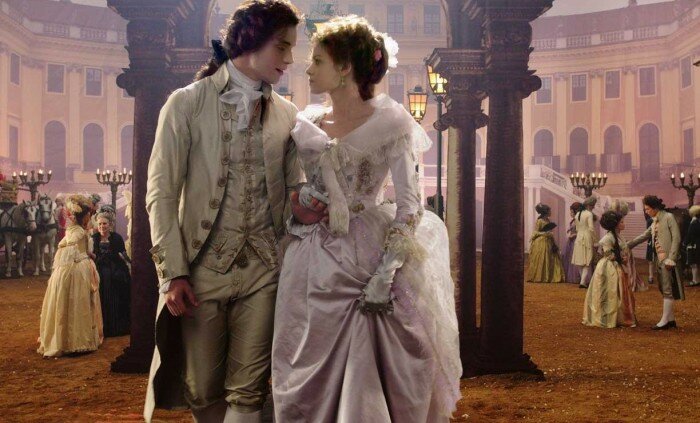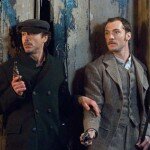Directed by Carlos Saura and set in the lavish world of upper class 18th Century Venice and Vienna, I, Don Giovanni is a tribute to opera and the libertine movement, and in particular a dedication to Venetian lyricist and poet Lorenzo de Ponte.
The film starts very promisingly as we are introduced to the protagonist, Lorenzo de Ponte (Lorenzo Balducci), a Jew who has been forced by circumstance to convert to Christianity, and become a Priest under the stewardship of the High Inquisitor of Venetian Republic. All of this however is but a facade for Leonardo as he has no attachment to his new faith and is in fact a secret Freemason and apprentice to the notorious libertine Giacomo Cassanova (Tobias Moretti), another Freemason and a man who has powerfully shaped Leonardo in his own image as a womaniser, poet and scoundrel.
This first act of the film, indeed little more than a prologue, though sadly short, is also its most compelling. There is gripping intrigue, danger and drama as Lorenzo tries to maintain his act as a Priest while chasing women and publishing “dangerous” and scandalous poetry which the Inquisition is trying to stamp out. Before any of this has a chance to flesh out into a substantial story, Leonardo is inevitably caught out and exiled, making his way to Vienna to serve in the court of the Austrian King as a writer collaborating with the brilliant young prodigy Wolfgang Amadeus Mozart (Lino Guanciale) in his compositions for the Vienna Opera.
This is technically where the real story is supposed to begin, with everything in Venice simply a quick setup for the tale to come; that of these two young and very different artists collaborating to create a bold and risqué new opera masterpiece – the tale of Don Giovanni, a legendary rake and womaniser, who Lorenzo sees as a reflection of himself. This should be the moment where the story takes off. Instead, the film instead descends into a dull stupor from this point on, losing the drama and momentum of the prologue to a slow, poorly paced and erratic unfolding of a mediocre romantic arc where Lorenzo finds himself pursuing his muse and heart’s desire, Annetta (Emilia Verginelli), while work on the Don Giovanni opera continues.
The film is not without its moments, and often individual scenes are funny, enjoyable and beautifully acted. But there is a lack of consistency and drive to the story, which ends up getting lost on tangential side stories that do not pan out and bouncing around from character to character without enough drama or sharpness to deeply engage or sustain interest. Visually too, the film is a bit of a mixed bag, with lavish costumes and makeup, but distractingly artificial sets. It seems at times that the film can’t quite decide if it’s trying to recreate the feel and effect of a theatrical play, or a period film, and ends up somewhere inconclusively in between.
The heart of the film attempts to be a love story. However the irony is that the love story itself is also its weakest component. While the film has many admirable elements and entertaining moments, it never quite forms into a cohesive whole, bogged down with uninteresting side stories and a distinct lack of drama and engagement. For those who love opera, Mozart, costume dramas or Italian libertines, there will probably be enough there to enjoy about the film to make it worthwhile. But its flaws in story-telling sadly prevent it from really emerging as a really solid film.



![Love 14 [Amore 14] (Review) Love 14 [Amore 14] (Review)](/wp-content/uploads/amore14_011-150x150.jpg)

![Farewell [L'Affaire] (Review) Farewell [L'Affaire] (Review)](/wp-content/uploads/l-affaire-farewell-2009-17387-16603007071-150x150.jpg)










